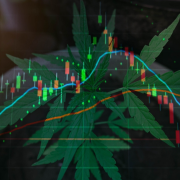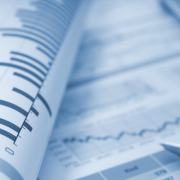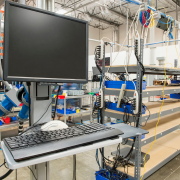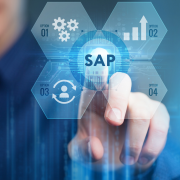Best Software for Food and Beverage Industry
The place of effective resource management in the food and beverage sector does not have enough emphasis. Most businesses struggle to survive the strict regulations of safety standards, fluctuating demand, and even the required consistency of handling recipes and ingredients. Without a doubt, these multiple facets directly impact achieving positive results in the industry. This is why it’s crucial to have software that can help with management and automation – but just exactly what is the best software for the food and beverage industry?
Most business owners manage and tackle most issues by integrating an enterprise resource planning system, also known as ERP systems. Some have designs solely for food manufacturing companies, while others EPRs are for general use but accept customizations for food-specific processes. From financial management to quality assurance and human resources, this type of software serves as a business management solution to monitor food safety, improve supply chains, and respond to consumer trends.
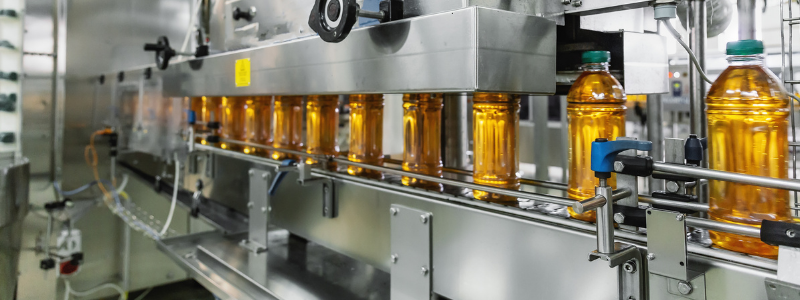
Why Does the Food and Beverage Industry Need Software?
Unlike other industries, running a food manufacturing business in a world of constantly growing technologies and innovations relies on several unavoidable implementations. Hence, the design of the food ERP software to address and simplify several complicated management processes, including:
- Keeping up with the strict regulations.
- Maintaining consistency regardless of the market changes
- Satisfying consumer demands for accountability
- Adhering to the constantly changing consumer trends
That being said, every business owner must recognize the place of the ERP and how it works. Here are some reasons for the ERP software in the food and beverage industry:
Achieve better safety and compliance standards
While the essence of food safety and compliance regulations exists to protect your customers, it also preserves your business’s formidable reputation. Most companies can often face challenges – such as shipping decaying or rotting food or having an unsanitary warehouse – with pests or rodents problems damages.
Aligning with the regulatory compliance and investing in the food and beverage software ensures the business grows. It also automates reporting and mandates proper measures such as wearing gloves, hairnets, and face masks by all employees when working with food.
The two main food industry regulatory bodies in the USA – Food and Drug Administration and Environmental Protection Agency, set the standards for food safety for the public.
The main focus of the FDA policies is to administer initiatives such as:
- Hazard and Critical Control Points ensure that manufacturers identify the compulsory risks and establish specific measures to capture and control these conditions.
- Food Safety Modernization Act compels the facilitates to prepare and effect a food defense plan.
- Current Food Manufacturing Practices establish a ground for processed foods and dietary supplements to maintain optimum quality.
Ensures proper inventory supervision to maintain consistency
Every manufacturing industry relies on a well-organized inventory. It’s vital in the food and beverage since consistency with recipes is imperative to the brand’s quality. With the right ingredients and quantity stored in the ERP software system, employees can find what they need quickly. Batch scaling and setting minimum and maximum stock quantities help know when making less and more of a product are necessary to avoid stockouts or overstocking.
Eases traceability during recalls
Recalls are often necessary procedures to avoid financial risk to the business, leading to a catastrophe. Recalls are needed when products are spoiled or cross-contaminated, allergens aren’t well stated, or mislabels on packages. Immediately after noting these issues, it’s compulsory to notify the affected customers, the source of the product or ingredient, and the distribution locations.
While you can have detailed records of all products, allergy signs, shelf-life standards, and ingredients within the food and beverage software, recalls become stress-free. The system aids in initiating traceability, narrowing down specific items, find their raw ingredients and nutritional values.
Improves demands and supply management
Proper upkeep of everything you currently have in your inventory helps to reduce waste and increase profitability. This way, ordering ingredients at the wrong time and overstocking is under control.
The food and beverage software helps create a plan for demand and cuts waste by employing demand forecasting functionalities. Offering a sterner look into the current and past trends, business owners can plan purchases and production more accurately. Therefore, it improves the supply chain management processes and increases ROI.
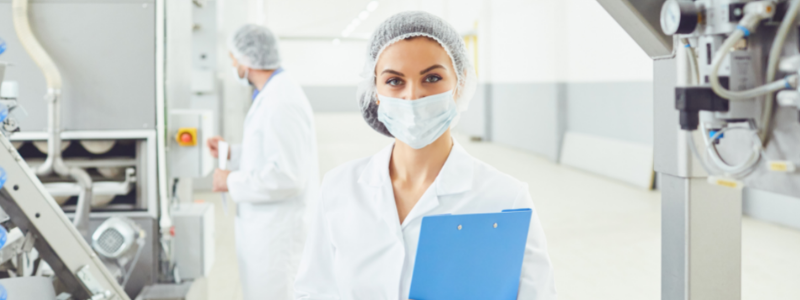
What is the Best ERP for Food and Beverages?
There are several options for food software companies with products on the market. Every ERP software comes with a different set of unique benefits and challenges in providing solutions to manufacturers.
SAP Business One:
SAP Business One is an enterprise software and the best choice for food manufacturers looking to expand and grow their operations. By offering all the necessary features, flexibility, high performance, and dedication to the need of the customers, SAP Business One proves to be the best ERP for food and beverage industry operations. Through SAP Business One embedded functionality, business owners can optimize product cost and profitability, minimize inventory spoilage, ensure compliance, manage pricing and promotions, facilitate recalls, etc.
Other Popular ERP Software to Consider
The focus remains to ensure the system aligns rightly with your company’s requirements. However, picking out the appropriate one can easily become a new challenge for most business owners in this sector.
BatchMaster:
This ERP software supports the food and beverage industry’s unique production, inventory, traceability, compliance, and quality requirements. It also supports direct integration with SAP Business One and other popular enterprise software.
ProcessPro:
The design of this system focuses on small to medium-sized manufacturers in the industry. It offers access to recipe management, quality control, inventory management, and lot traceability features.
Aptean Ross:
The Ross ERP gives solutions to manufacturers of all sizes with features for lot traceability, formula management, and yield management. It also offers fast implementation speed with lesser installation time.
Deacom:
Deacom system is a built-in accounting and financial tool that responds to the challenging requirement of the food manufacturing industry. It offers comprehensive inventory features such as formulation management, traceability, and full lot control.

Why is SAP Business One the Best Software?
As a top ERP provider, SAP Business One is a comprehensive and easy-to-integrate enterprise software with core business functionalities for businesses in all sectors. It offers the best ERP solutions to almost everything from compliance adherence, quality assurance, and effective traceability to intuitive inventory management.
In particular, food and beverage businesses require a system to make operations more efficient and overcome the challenges of this strict industry. Designed to assist in all facets of the food manufacturing company, the SAP Business One Software fits the description.
SAP Business One provides solutions in the food and beverage industry, such as:
- Improve the efficiency of operation.
- Reduce cost and better utilize resources for better products and the best price.
- Automated processes to save time and increase production.
- Helping small businesses adapt and be competitive in the ever-changing market.
- Provides accounting software to analyze sales trends and increase ROI.
- Enables an organized integration process for companies with multiple branches.
Every company that thrives in the food and beverage industry has something that works for them.
Forming a lasting relationship and implementing the SAP Business One ERP software can help to provide solutions to financial management, sales and customer management, purchasing and inventory control, and business intelligence.

